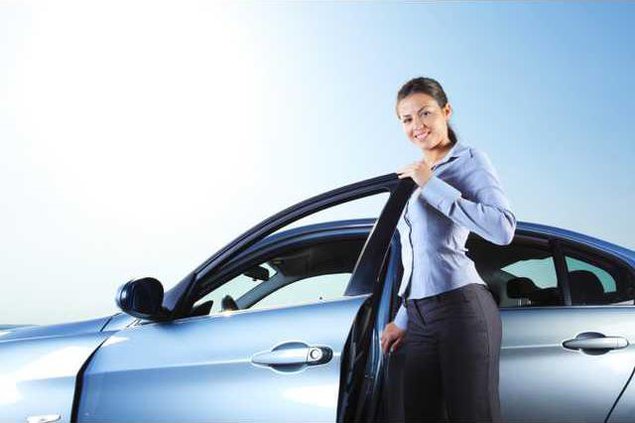Here's a twist on family resemblance: A Swiss study says it's possible to match people with their cars, because they look alike. And the resemblance carries through to the family dog, too.
For the study, published in the Swiss Journal of Psychology, researchers from the University of Vienna took photos of cars from various angles, as well as photos of the owners' faces. Then they handed strangers an array of six photographs of faces and asked those people to pick which one they believe went with a certain car. They ranked them from the most likely owner to the least like.
People had no great success matching cars to owners if it was a side or rear view of the vehicle. But when they looked at the front of the car, the scores went up dramatically.
People, they concluded, choose cars that look like them.
As Jesse Bering noted in Scientific American: "Previous research by the anthropologist Sonja Windhager and others had shown that when we look at cars from the front, we implicitly perceive faces staring back at us. Windshields evoke foreheads, headlights remind us of eyes, side-view mirrors are stand-ins for ears, grills do the trick for noses and the additional air intake conveys a mouth.
"Of course, those of us who are sane — and even most of us who aren’t — don’t actually believe that cars have faces. But that doesn’t stop us from processing them this way. In fact, Windhager found that, just as we do for human faces, we attribute different traits and personality characteristics to different models of cars due to their unique front end designs. The VW Beetle is seen as being 'happy,' for example, the Honda Civic has a 'neurotic' appearance and the BMW 645ci gives off a 'dominant' and 'angry' scowl."
Researchers Stefan Stiegar and Martin Voracek "suspected the participants — split equally between men and women and across all ages, from 16 to 78 — would be able to tell with better-than-chance odds which car belonged to whom — and they did. The real owner was invariably ranked '1' most frequently and '6' least frequently," according to an article in Autofocus.
Don't forget that previous research has shown that dogs resemble their owners, too. So the Swiss researchers went one step further and asked people to look at photos of the cars and of purebred dogs and pair them up. It worked. They were able to do so far more often than chance would have accounted for, the study said.
But there's still one question, now that we know the family dog and family car look alike, who in the family do they resemble? And another bit of research puts that one to rest. It was established by studies years and years ago that married couples begin to look alike. And since kids look like their parents, who look like their cars, who look like their dogs ....
Email: lois@deseretnews.com, Twitter: Loisco
Unusual resemblance: You look just like your car and it looks like your dog





